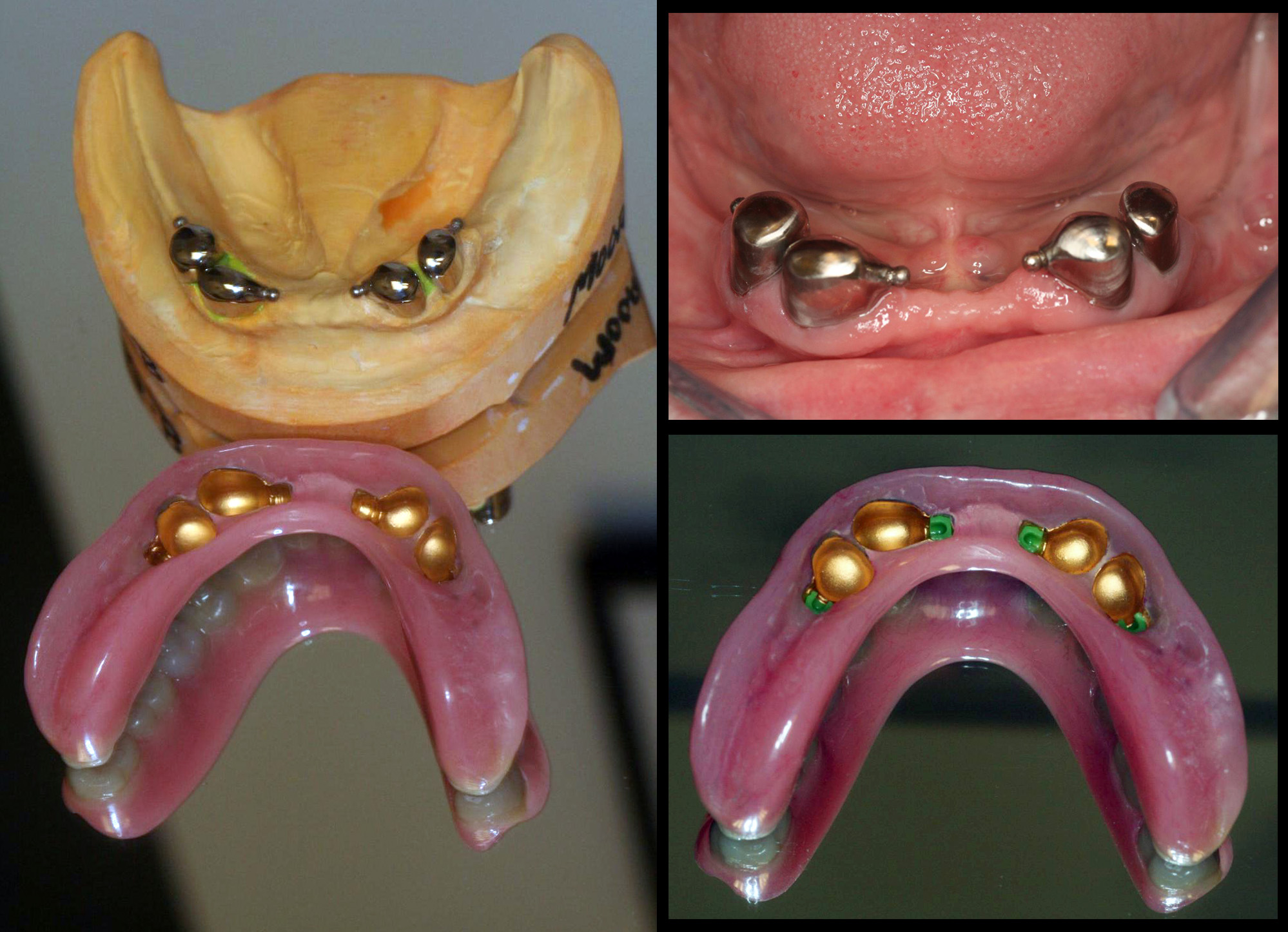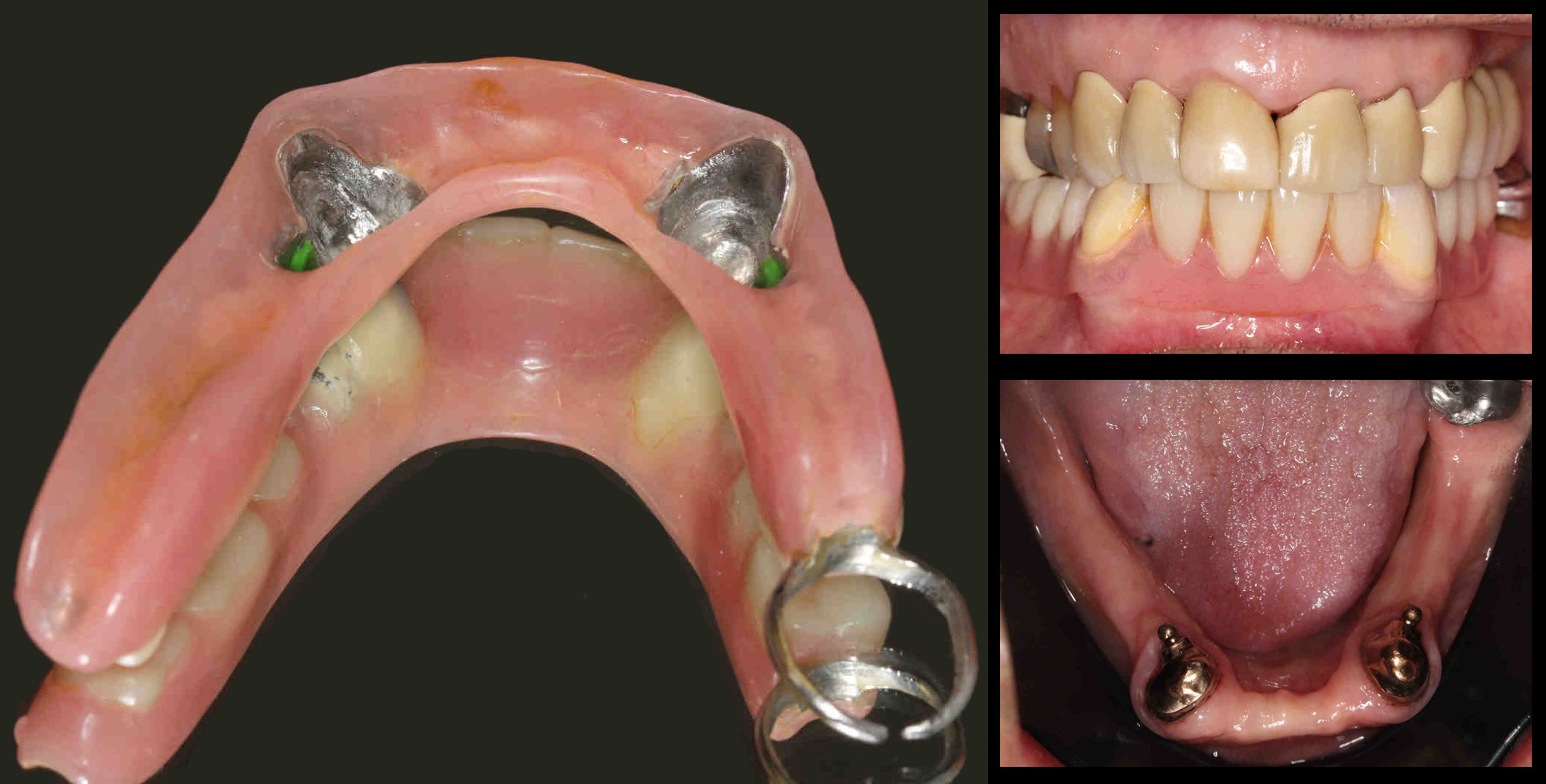In Matthews, NC, McKee Dental Associates is your trusted source for top-quality dental partials. Missing teeth can be a source of embarrassment, affecting both your self-esteem and oral health. That’s why we’re here to offer exceptional solutions to restore your smile. Our dental partials in Matthews, NC, are carefully crafted to provide a comfortable fit and a natural look, helping you regain confidence and proper oral function. Don’t let missing teeth hold you back any longer. Contact McKee Dental Associates today to explore our excellent dental partial options in Matthews, NC, and take the first step towards a brighter, healthier smile.
Explore Affordable Removable Partial Dentures
Removable partial dentures consist of replacement teeth attached to pink or gum-colored plastic bases. They are an economical option when fixed bridges or implants are not possible or are out of your budget. We will custom design a dental partial for you depending on your needs and remaining teeth as well as whether or not you want the dental partial clips hidden, or if you are OK seeing the metal. Like full dentures, they can be made in different materials depending on the quality and budget desired.
 Basic
Basic
The most basic dental partial is an all-plastic “flipper” made of acrylic and sometimes with bent wire clasps where needed. These are mainly used in the case of immediate extractions as a temporary. They are also used in cases where other teeth might be lost in the future, the patient’s bite is not stable, or a health condition makes sense to choose a less expensive option.
 Standard
Standard
A standard dental partial has a metal framework and clasps that connect to your teeth. While we do our best to design them so that the metal is kept to a minimum, some of it will be visible. Their main advantage is their durability and lightweight. They have a proven track record and can be used to solve many unusual problems.
 Upgraded
Upgraded
Partials can also have clips that are more natural-looking. These flexible options go under many trade names and they can be made with or without a metal framework. The plastics used are hypoallergenic and very durable. They are usually tooth or gum-colored and once in place are almost invisible. The only downside to these materials is that most cannot be changed or relined once they have been processed. Any changes in the future require re-fabrication of the plastic section. They are also more difficult to adjust.
The Precision Dental Partial
Precision attachments on crowns or copings are very specialized techniques used to fabricate partial dentures. Crowns, telescopic copings, and clips are combined to make a part that snaps in similar to implants. They can feel close to a fixed bridge while still being removable for cleaning. The attachments (or clips) are hidden underneath and so are very esthetic. Partial dentures with precision attachments cost more than those with clasps while being much more affordable than implants. While clasps provide ounces of holding power, precision clips provide pounds of holding power and make a dental partial much more stable.
What to Expect from a Dental Partial
- In the beginning, your new partial denture may feel awkward or bulky. This is normal, and you will eventually become accustomed to wearing it.
- Inserting and removing the partial denture will require some practice.
- Your denture should fit into place with relative ease. Never force the partial denture into position by biting down. This could bend or break the clasps.
- We will give you specific instruction about how long the denture should be worn and when it should be removed.
- Initially, you may be asked to wear your partial denture all the time. Although this may be uncomfortable at first, it’s the quickest way to identify areas that may need adjustment.
- If the denture puts too much pressure on a particular area, that spot will become sore. We will adjust the dental partial to fit more comfortably. After making adjustments, we recommend that you take the partial denture out of your mouth before going to bed and replace it in the morning.
- Start out by eating soft foods that are cut into small pieces. Chew on both sides of the mouth to keep even pressure on both sides. Avoid foods that are extremely sticky or hard. You may want to avoid chewing gum.
- A partial denture can temporarily change your speech. If you find it difficult to pronounce certain words, practice reading out loud. Repeat the words that give you trouble. With time, you will become accustomed to speaking properly with your dental partial.
How to Care for Your Dental Partial
- Look for denture cleansers that are not abrasive. Do not use regular toothpaste as it is too harsh for the plastic.
When cleaning a partial denture, it’s a good idea to stand over a folded towel or a sink of water just in case you accidentally drop the denture. - Some people use hand soap or mild dishwashing liquid to clean their dental partial, which are both acceptable. However, most household cleaners are too abrasive and should not be used for cleaning dentures.
- Brush the denture each day to remove food deposits and plaque. The helps the denture from becoming permanently stained. It’s best to use a brush that is designed for cleaning dentures because it has bristles that are arranged to fit the shape of the denture. A regular, soft-bristled toothbrush is also acceptable. Avoid using a brush with hard bristles, which can damage the denture.
- Clean your dentures by thoroughly rinsing off loose food particles. Moisten the brush and apply the denture cleaner. Brush all denture surfaces gently to avoid damaging the plastic or bending the attachments.
- A dental partial could lose its proper shape if it is not kept moist. At night, the denture should be placed in soaking solution or water. Your dentist in Matthews can recommend the proper method for keeping your dental partial in good shape.
- Don’t chew, swallow, or gargle with denture cleansers.
- Always thoroughly rinse the partial before placing it in your mouth.
Adjustments to a Dental Partial
Over time, adjustments to your prosthesis will be necessary. As you age, your mouth naturally changes, which can affect the fit of the partial or denture. Your bone and gum ridges will recede or shrink, resulting in a poorly fitting denture over time.
Dentures or partials that do not fit properly should be adjusted and, in some cases, relined. Poorly fitting dentures can cause various problems, including sores or infections. See us promptly if your denture becomes loose, and maintain your regular visits, too.


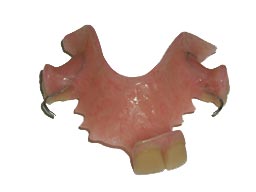 Basic
Basic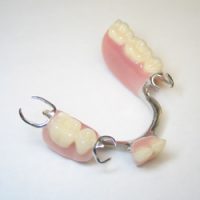 Standard
Standard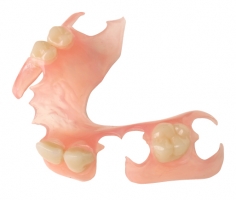 Upgraded
Upgraded